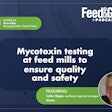Sixteen months ago, the ethanol industry was facing a demand crisis. COVID-19-related stay-at-home orders reduced ethanol consumption by 44% in four months.
Ethanol plants across the country slowed production or shut downcompletely toconserve overhead costsas businesses, cities, counties and states continued their COVID-19 precautions.
While ethanol production is moving toward recovery to pre-COVID-19 levels, the industry is facing additional setbacks in the courts.
At the end of June, the Supreme Court of the United States held that the Trump administration EPA was permitted to grant small refinery waivers under the RFS even if the refiners had not previously been granted a waiver.
The decision reversed the Tenth Circuit Court of Appeals, which previously held that waivers could only be granted to refiners that had a waiver in all previous years since the program began.
Then, in the following week, the United States Circuit Court of Appeals for the District of Columbia struck down a 2019 rule change that allowed for expanded summertime ethanol sales.
The court found that the Trump administration overreached its authority when it lifted the ban on gasoline with higher ethanol content by authorizing the sale of 15% ethanol-blended gasoline in the summer months.
Both rulings have the potential to hold ethanol demand back, despite the fuel option being key to helping reduce greenhouse gas emissions.
Read the full reporthere.





















